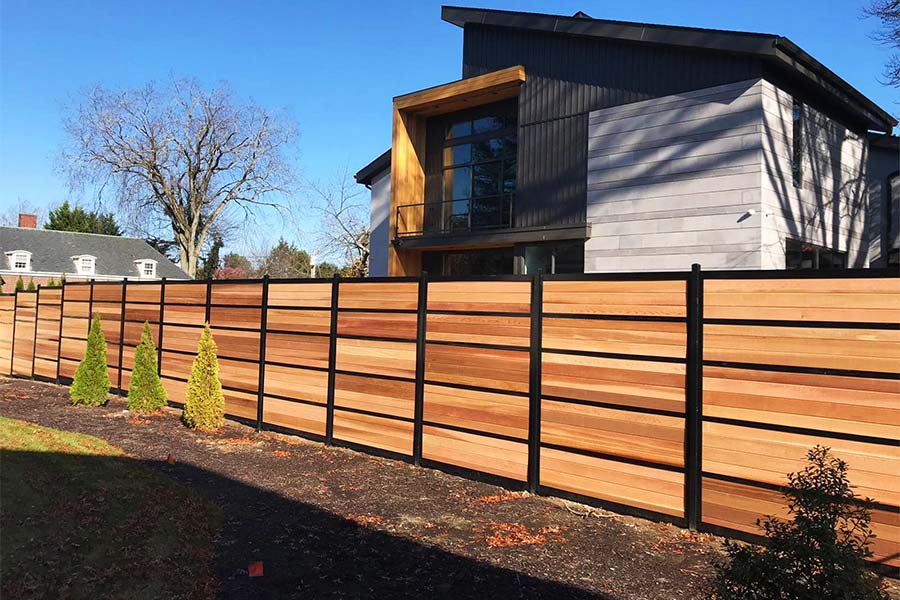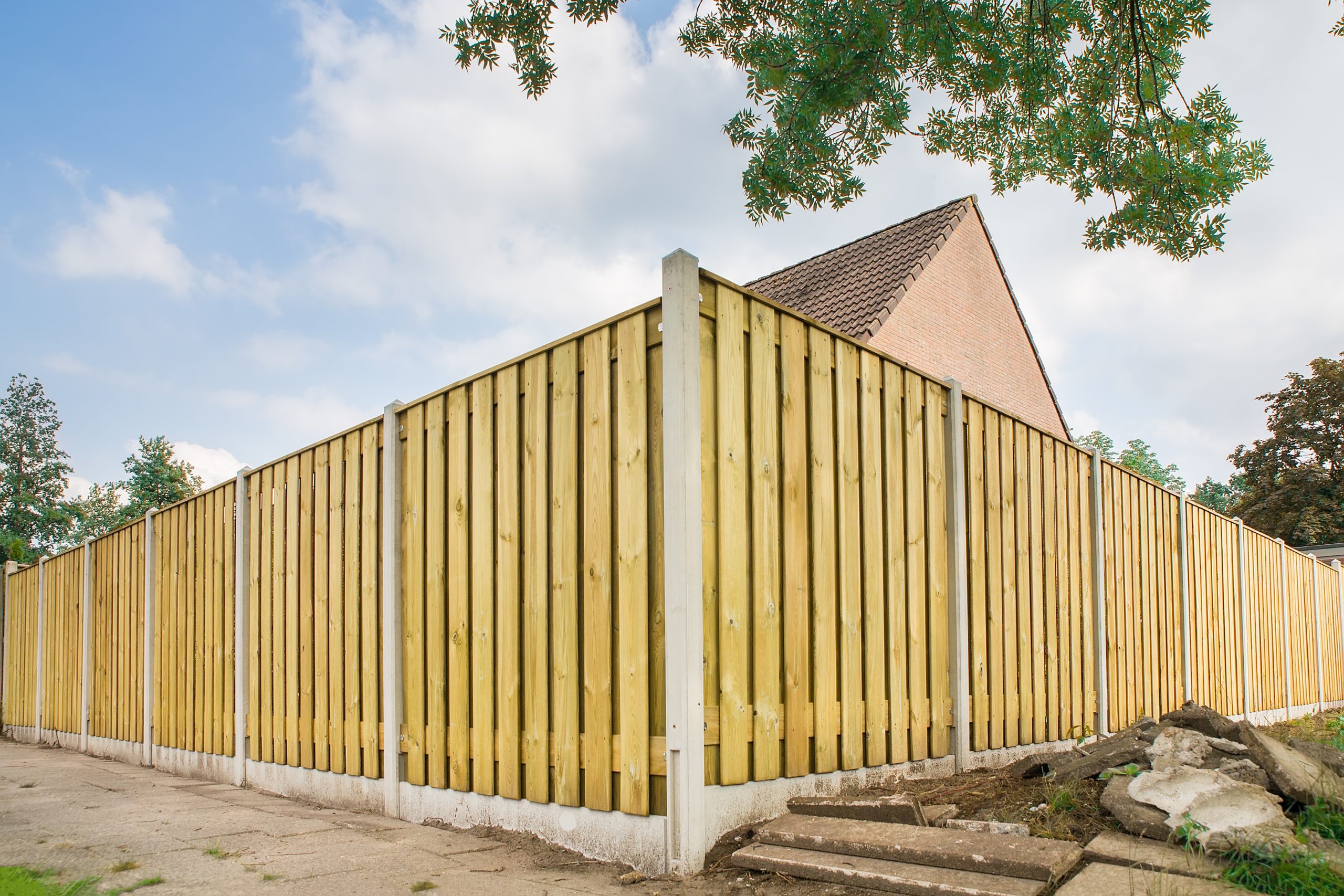All Categories
Featured
If you're considering mounting a fence around your residential or commercial property, comprehending the license demands in your area is crucial. In this guide, we'll damage down the various licenses you may require to install a fencing and exactly how to guarantee your project stays certified with local regulations.
Why Are Permits Required for Fence Installation? Authorizations are called for to guarantee that the fence you build comply with neighborhood building ordinance, zoning regulations, and safety and security standards. These authorizations are in place to shield your home, the properties around you, and the environment. They guarantee that the fencing won't block energies, web traffic circulation, or develop threats for pedestrians. In addition, they aid keep the visual and architectural stability of your community.
![]()
Sorts Of Permits You Might Requirement. Building Permit. A building authorization is the most typical need for mounting a fencing. This license makes certain that the structure you develop follow neighborhood safety codes and policies. If your fence surpasses a certain height (generally around 6 feet), you may require to get a structure permit. The neighborhood authorities will generally assess your strategies to make certain that your fencing is secure and structurally sound.
Zoning License. A zoning license makes sure that your fencing complies with these policies. Your fence could need to be established back a certain distance from sidewalks or building lines.
Homeowners Association (HOA) Approval. If your residential property becomes part of a property owners association, you might need approval prior to mounting a fence. HOAs frequently have stringent rules pertaining to the type, design, and products made use of for fencings to preserve an uniform look throughout the area. The HOA might require you to submit comprehensive plans or demand authorization before installation. Make sure you follow these guidelines to avoid potential penalties or penalties.
Specialized Permits. In many cases, you might need specialized allows based upon the location of your residential or commercial property or the nature of your fencing. If your building is in a flood zone, you may require added licenses to guarantee that your fence does not obstruct drainage or water flow. If you intend to construct a fencing near an environmentally secured area, you might need a special permit to comply with environmental laws.
![]()
Utility Easements and Utility Company Authorizations. Some buildings have utility easements, which are areas designated for energy lines, cords, or pipes. Before installing a fencing, you have to check if your building has an easement. Constructing a fence within an easement might disrupt energy upkeep or damages underground lines. You might require approval from the utility company or neighborhood authorities prior to continuing with the installment.
How to Identify Which Allows You Required. Contact Local Authorities. The very first step in identifying the permits called for is to contact your regional structure department or zoning office. They can provide specific information regarding what licenses are required for your area. Several cities have on-line resources or portals where you can check the demands or perhaps look for an authorization online.
Speak With a Specialist Fence Specialist. A local fence professional is commonly accustomed to the license process and local guidelines. They can assist you navigate the demands and ensure that your job is compliant. Numerous specialists also manage the authorization application process in your place, saving you effort and time.
Testimonial Your Area's HOA Standards. If you live in an area governed by an HOA, make certain to examine their guidelines before getting any permits. The HOA may need details layouts, products, or height constraints for fencings within the area. Send your plans to them for approval before continuing.
![]()
Effects of Not Acquiring a License. Installing a fence without the called for permits can result in severe consequences. You might encounter penalties, be bought to remove the fence, or be needed to redo the installation to fulfill code needs. In addition, marketing your home can be complicated if the fence doesn't fulfill local regulations. Potential customers might think twice to acquire a residential or commercial property with an unpermitted fence, especially if it's in violation of zoning legislations.
Verdict. Before installing a fencing on your building, ensure you comprehend the local policies and obtain any essential licenses. Structure authorizations, zoning authorizations, HOA approvals, and specialty permits all play an essential function in guaranteeing that your fencing is risk-free, legal, and compliant. Putting in the time to study and secure the suitable licenses will conserve you from pricey errors and potential lawful problems in the future. Whether you're planning a privacy fencing or an attractive border, complying with these actions will certainly aid make the installment process smooth and hassle-free.
Why Are Permits Required for Fence Installation? Authorizations are called for to guarantee that the fence you build comply with neighborhood building ordinance, zoning regulations, and safety and security standards. These authorizations are in place to shield your home, the properties around you, and the environment. They guarantee that the fencing won't block energies, web traffic circulation, or develop threats for pedestrians. In addition, they aid keep the visual and architectural stability of your community.

Sorts Of Permits You Might Requirement. Building Permit. A building authorization is the most typical need for mounting a fencing. This license makes certain that the structure you develop follow neighborhood safety codes and policies. If your fence surpasses a certain height (generally around 6 feet), you may require to get a structure permit. The neighborhood authorities will generally assess your strategies to make certain that your fencing is secure and structurally sound.
Zoning License. A zoning license makes sure that your fencing complies with these policies. Your fence could need to be established back a certain distance from sidewalks or building lines.
Homeowners Association (HOA) Approval. If your residential property becomes part of a property owners association, you might need approval prior to mounting a fence. HOAs frequently have stringent rules pertaining to the type, design, and products made use of for fencings to preserve an uniform look throughout the area. The HOA might require you to submit comprehensive plans or demand authorization before installation. Make sure you follow these guidelines to avoid potential penalties or penalties.
Specialized Permits. In many cases, you might need specialized allows based upon the location of your residential or commercial property or the nature of your fencing. If your building is in a flood zone, you may require added licenses to guarantee that your fence does not obstruct drainage or water flow. If you intend to construct a fencing near an environmentally secured area, you might need a special permit to comply with environmental laws.

Utility Easements and Utility Company Authorizations. Some buildings have utility easements, which are areas designated for energy lines, cords, or pipes. Before installing a fencing, you have to check if your building has an easement. Constructing a fence within an easement might disrupt energy upkeep or damages underground lines. You might require approval from the utility company or neighborhood authorities prior to continuing with the installment.
How to Identify Which Allows You Required. Contact Local Authorities. The very first step in identifying the permits called for is to contact your regional structure department or zoning office. They can provide specific information regarding what licenses are required for your area. Several cities have on-line resources or portals where you can check the demands or perhaps look for an authorization online.
Speak With a Specialist Fence Specialist. A local fence professional is commonly accustomed to the license process and local guidelines. They can assist you navigate the demands and ensure that your job is compliant. Numerous specialists also manage the authorization application process in your place, saving you effort and time.
Testimonial Your Area's HOA Standards. If you live in an area governed by an HOA, make certain to examine their guidelines before getting any permits. The HOA may need details layouts, products, or height constraints for fencings within the area. Send your plans to them for approval before continuing.

Effects of Not Acquiring a License. Installing a fence without the called for permits can result in severe consequences. You might encounter penalties, be bought to remove the fence, or be needed to redo the installation to fulfill code needs. In addition, marketing your home can be complicated if the fence doesn't fulfill local regulations. Potential customers might think twice to acquire a residential or commercial property with an unpermitted fence, especially if it's in violation of zoning legislations.
Verdict. Before installing a fencing on your building, ensure you comprehend the local policies and obtain any essential licenses. Structure authorizations, zoning authorizations, HOA approvals, and specialty permits all play an essential function in guaranteeing that your fencing is risk-free, legal, and compliant. Putting in the time to study and secure the suitable licenses will conserve you from pricey errors and potential lawful problems in the future. Whether you're planning a privacy fencing or an attractive border, complying with these actions will certainly aid make the installment process smooth and hassle-free.
Latest Posts
The Top 5 Mazda SUVs for Family Adventures in Arizona
Published Dec 23, 24
2 min read
What Are the Conveniences of Picking a Custom-made Fencing Layout?
Published Dec 23, 24
0 min read
What Permits Are Required for Mounting a Fence My Area?
Published Dec 23, 24
0 min read